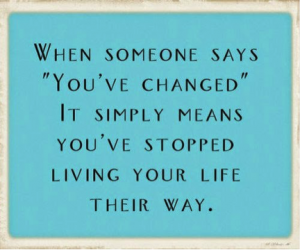Q1. When your clients are planning a career change, I assume that one of your main objectives is to lend them your support and guidance. The career change could be major or minor, either through promotion, creating a new business venture, or just starting out in the corporate world after graduation. Do you often find that your professional help is not enough for these clients without some recognition and support from their close friends and family?
A1. Ideally, my clients get plenty of encouragement from their friends and family. I pride myself in making sure that clients are setting ambitious but realistic goals. I help them accomplish these goals by assisting with the tasks and key steps where they need the help. Despite my best intentions and efforts, when it comes to pursuing a new endeavor, my influence and support can only go so far – especially if my client is working against active resistance from their loved ones.
Q2. So does that mean you take on a client’s entire family when executing a plan or strategy for a career change?
A2. I definitely take clients’ key supporters into account. Most meaningful changes are hard enough without also working against close friends and family. Once I’ve established that my client’s intentions are promising and achievable, the next hurdle can sometimes be showing their loved ones that the transition will have a positive (not a negative) outcome. Often, this is easier said than done because there is a multitude of reasons why someone making a career shift may not be getting the respect or support needed from their family and friends.
Q3. What are some of those reasons?
A3. For most of us, change can feel very scary. It involves trading the known for the unknown, and that implies risks. At any stage of one’s life, switching things up professionally can sometimes look like a reckless gamble or selfish to onlookers. People have strong opinions, and ultimately not all opinions are the same … nor do all opinions deserve the same weight. Naturally, there is sometimes resistance from those who may also be affected by the anticipated change. This is why when I assess these professional ‘makeovers’ I do weigh out the potential for success versus failure … and the most likely implications. My input definitely alleviates some of those concerns.
Q4. Can you tell when a client is involved in a ‘normal’ familial disagreement about a professional change or career advancement versus being immersed in a toxic, controlling situation, at home?
A4. I have a lot of personal, lived experience and plenty of experience with one-on-one client relationships. This context helps me recognize relatively common concerns that make a spouse or friend (seem) unsupportive about an impending career change. In many respects, some subtle and others less subtle, this feels much different from having a chronically disruptive person in your life who may not have your best interests at heart. When a well-intentioned family member (or close friend) is showing signs of being unsupportive it’s often about a fear of losing financial stability, genuine skepticism that the job isn’t suitable, or an unexpressed desire to make some kind of improvement or change themselves … rather than them being an uncooperative, negative, or toxic person.
Q5. Can you describe a scenario where someone has already made/decided to make a career transition and then (after the fact) encounters discouragement, hostility, a lack of confidence, or even jealousy from their friends and family?
A5. Unfortunately, this happens more often than most people expect. Sometimes, it’s a stay at home mom who now plans to re-enter the workforce, and may face obstructing opinions such as “your child is too young”, “daycare is too expensive”, or “who will take care of the domestic duties?” I have also seen clients face this kind of opposition when they were trying to make significant advancements in their career. They were met with different but equally unsupportive opinions, resistance, and sometimes professional jealousy. This is true especially for those who get major opportunities to travel or relocate. Having to uproot your family, move to a foreign country, and ultimately leave your community and other loved ones can create many unforeseen tensions.
Q6. What about for younger clients who are just starting out? What kinds of disapproval and/or opposition may they encounter when choosing a career?
A6. Younger adults (including recent graduates and graduate students) can also experience unexpected criticism when it comes to their future career plans and choices. Sometimes it’s because they are asserting their aspirations and autonomy to their parents and this may mean going against what others/society expects. For instance, if someone leaves university without finishing their program, or they set aside their newly acquired degree to travel or acquire further education, they might receive unsupportive commentary from their family … especially if their parents have financially invested in another career plan for them. There is much more to this important topic but one can only address so much in a single blog post.
If you identify with any of these issues or wish to discuss career options, I invite you to contact me by email, phone, or via direct message on Twitter, Facebook, or LinkedIn.
More than career coaching, it’s career psychology®.
I/O Advisory Services – Building Resilient Careers and Organizations.™
Easily share this article using any of the social media icons below.






